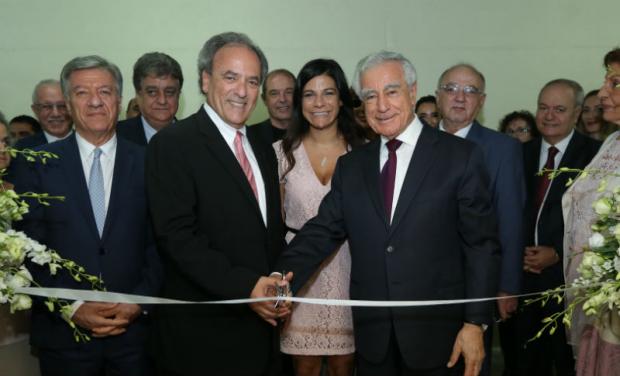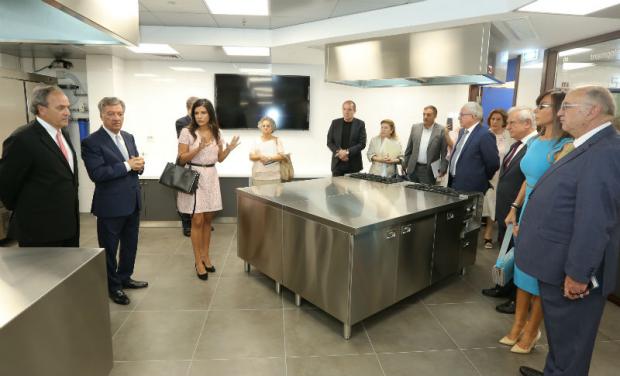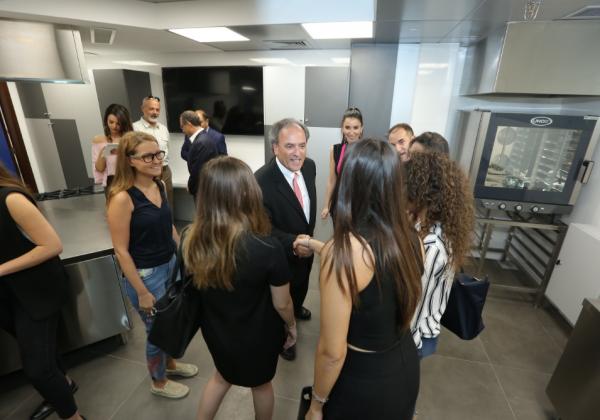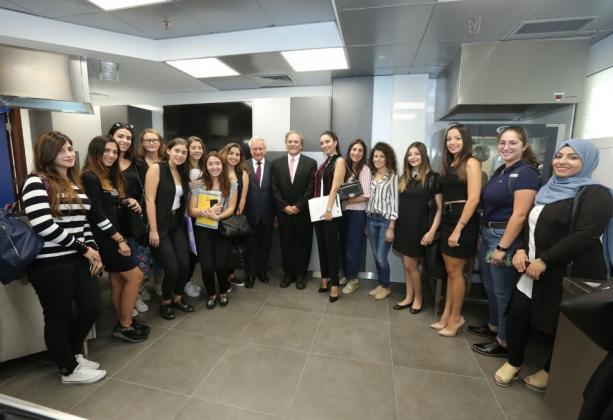The Future of Nutrition: LAU’s Fouad El-Abd Food Innovation Lab Officially Inaugurated
Fouad El-Abd, the founder and president of leading canned food company California Gardens, and LAU President Joseph G. Jabbra cut the ribbon of the university’s Fouad El-Abd Food Innovation Lab earlier this week on Byblos campus. Marking the official inauguration of the campus’ newest facility, the special events on October 15 drew in dozens of supporters, faculty, staff and students to celebrate and tour the nearly 100-square meter functional space, which is comprised of a core kitchen lab, a support lab service room and meeting room.
The cutting-edge lab, located on the ground floor of the Science Building, was made possible by El-Abd’s substantial donation to LAU two years ago. Thanking the donor for his generosity, Dr. Jabbra said during the inauguration’s signing ceremony, “On behalf of the LAU family, including faculty and Nutrition Program students, I would like to thank you from the depths of our hearts for your generous gift and what you have done for our community.”
El-Abd shared with attendees his vision for his namesake lab. “The tahini and hummus business in the United States is a billion-dollar business, which is incredible. And with the Lebanese and Arab cuisine having a vast menu of food that is becoming very popular around the world, there is so much potential for students who can use the lab to innovate and keep all our dreams and traditions alive,” he said. He later presented Dr. Jabbra with a can of hummus that went to outer space as part of California Gardens’ partnership with NASA to supply the food to the International Space Station.
After the signing ceremony, the donor and attendees visited the Fouad El-Abd Food Innovation Lab to see the facility firsthand. Associate Professor Nadine Zeeni, who is also the coordinator of LAU’s Nutrition Program, was on hand to discuss specifications of the lab with attendees.
“The lab will enhance LAU’s positioning in the nutrition field, giving an edge to the program in terms of hands-on practice to relate culinary, nutritional and food-safety theory to practical applications,” she said.
In addition to being a huge asset for the Nutrition Department, the multifunctional lab will be used by students in the Department of Hospitality Management and Marketing, as well as by external entities at a cost, enabling the university to generate profit from the space.
“From time to time, we get approached by local food industries to help them carry out research and development projects. This will be a paid service, and as such it is a win-win collaboration for the industry and LAU,” said Hussein F. Hassan, associate professor of food science and technology, and associate chairperson of the Department of Natural Sciences.
The university’s Facilities Management team was also present to provide attendees with an overview of the new lab and the great effort it took to develop the high-tech space.
“Because the original premises did not have the adequate logistical requirements for housing a state-of-the-art food lab intended for academic and research activities, design and execution were extremely challenging. But we were able to find special solutions to address functional, architectural and safety-related challenges,” explained Assistant Vice President for Facilities Management Georges S. Hamouche, who thanked his team, consultants Mario Azzi & Partners, contractor TCC, and Vresso, which supplied the high-end kitchen equipment, for the project’s successful outcome.
Attendees also took a brief tour of Byblos campus and attended a lunch hosted by Dr. Jabbra. The Fouad El-Abd Food Innovation Lab will be used this semester for quantity food production, meal planning, and food preparation courses.



